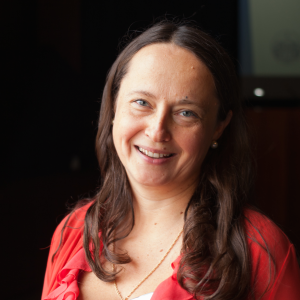Tetyana Milojevic

From
In residence at
Molecular Biophysics Center (CBM) / CNRS - FR
Host scientist
Frances Westall
BIOGRAPHY
Tetyana Milojevic (orcid.org/0000-0001-8415-1890) is an astrobiologist with an expertise in the area of metal-microbial-mineral interactions. She obtained her PhD in biochemistry at Taras Shevchenko National University of Kyiv, Ukraine. She was a deputy head of the Department of Biophysical Chemistry, University of Vienna and a leader of Space Biochemistry group (2014-2022) investigating biotransformation of terrestrial and extraterrestrial minerals and microbial survivability in outer space environment. She has recently received ERC consolidator grant to decipher microbial biosignatures left on Mars mineral materials. Since May 2022 she is a holder of Excellence professorship chair in Exobiology at the University of Orléans.
PROJECT
„BIOMAMA“ Biogenicity of Martian Materials: critical assessment of biosignatures based on chemolithoautotrophic interactions
The search for biologically driven alterations on Mars and its potential as habitat for past or present life is a primary aim of the upcoming Mars exploration missions. While a range of environments that would have been well suited to support a potential chemolithotrophy on Mars have been proposed, our understanding of putative biosignatures to be targeted in Martian materials is still illusory. A valuable source of information can be extracted from microbial fingerprints of chemolithotrophic life based on Martian materials (Martian meteorites, regolith simulants). Chemolithotrophic microorganisms employ an astonishing number of metabolic pathways to extract energy from diverse inorganic electron donors/acceptors, shaping global biogeochemical cycles. Using a holistic approach based on laboratory, field and space exposure experiments, we propose to investigate interactions of Earth’s various chemolithoautotrophs with Martian materials. The bottom-up exploration of mineral-microbial interactions for different chemolithotrophs cultivated on Martian materials as the sole energy sources, will decipher mineral and metabolic biosignatures associated with these cases. This project explores unique microbial interactions with extraterrestrial materials down to the nanoscale and atomic resolution utilizing a comprehensive toolbox of cutting-edge techniques. BioMaMa will identify preservable biomarkers/biosignatures of chemolithotrophic life on Martian materials after the exposure to simulated Martian conditions at low Earth orbit and ground-based facilities. A complex approach will be used to investigate meteorite-microbial interactions in Mars-analogue sites on Earth. The extensive knowledge gained from BioMaMa will help to understand and critically interpret the results of future Mars exploration missions. These studies will lay the foundation for efficient nanoanalytical spectroscopy of returned Mars samples, to critically assess their potential biogenicity.
